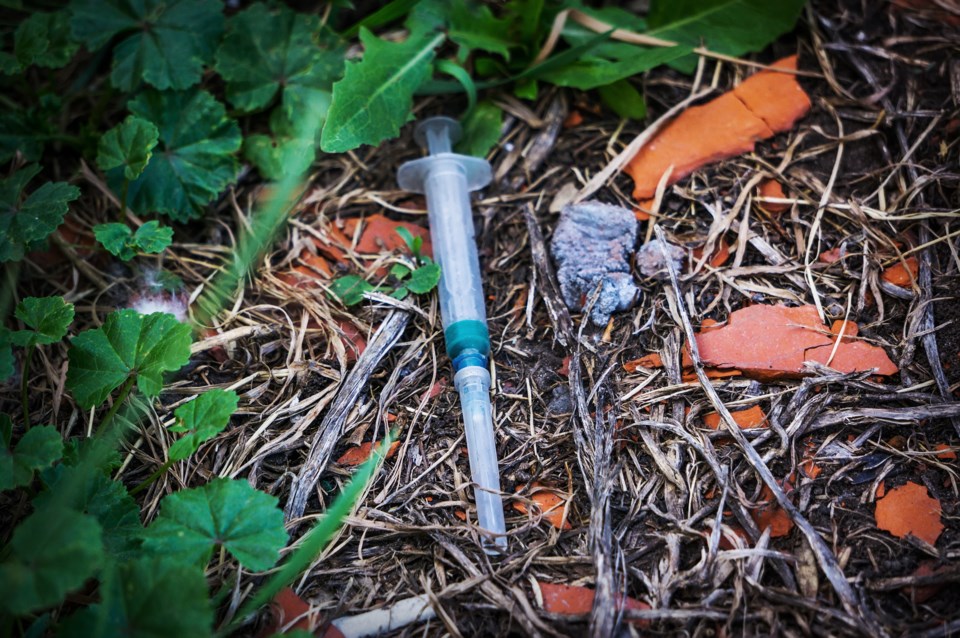B.C.’s troubled decriminalization pilot project hits its one-year anniversary this week, but you’re unlikely to hear the word “success” out of the mouths of any cabinet ministers, or the premier, when describing the first 12 months.
Overdose deaths remain at record highs. So is public dissatisfaction at the unintended consequences of rising street disorder and open drug use.
The BC NDP government is fighting the decriminalization blowback on two fronts — against former allies in court as it tries to roll back part of the pilot project, and against political opponents who wrote to the federal government this week urging the whole experiment to be scrapped immediately.
“We’ve had a lot of learnings out of year one that’s going to help us going into year two,” said Mental Health and Addictions Minister Jennifer Whiteside.
Whiteside has the unenviable task of stickhandling the increasingly-complex, slow-moving, political mess that is the file. An able minister, you can sense her frustration every time she speaks.
The only real success the NDP government can point to at the one-year mark is a 65.6 per cent reduction in the number of police interactions and investigations for drug possession under 2.5 grams compared with the year before.
That dovetails with a 95.6 per cent drop in minor drug seizures.
Neither is surprising when the pilot project quite literally decriminalized police from considering minor drug possession as an offence to investigate.
“It’s ridiculous that they would look at that and then consider the pilot to be as successful,” said BC United critic Elenore Sturko, a former RCMP officer.
“Really, at the heart of this matter, we were supposed to be saving lives. And there's very little evidence that this project has had any sort of impact on that whatsoever. We're in the worst state we've ever been since this public health emergency was declared.”
B.C. recorded 2,511 deaths from toxic drugs in 2023, a new record and a pace of almost seven people per day.
Part of the goal of the decriminalization project was to reduce the stigma facing drug users, so they would be less fearful of arrest or judgement if they approached health professionals for help.
But the government has found measuring stigma of drug users to be an incredibly difficult task — so much so it abandoned a public data dashboard with monthly updates it had promised Health Canada as a condition of federal approval for the pilot.
The word “stigma” is only mentioned once in B.C.’s latest report to Health Canada in November, and as a top-level goal, not a measurable outcome backed by any data.
Measuring public blowback, however, has been much easier. Local politicians and business leaders across the political spectrum have publicly warned for months about unintended consequences in the form of rising crime and vandalism, as well as public fear of interactions involving people in distress on city streets.
Retiring chief coroner Lisa Lapointe has said it’s important for the public to face head-on the difficult reality of drug use in public places, to see the scope of the ongoing crisis.
That’s not a tenable message for Premier David Eby to deliver to voters in an election year, however. He has warned that slumping public confidence could undermine the decriminalization initiative, which is why his government is fighting in court to enact a new law that would re-authorize arrests and seizures of drugs in public spaces like beaches, transit stops, parks and business doorways.
The goal, said Eby, is to show British Columbians they don’t have to give up public spaces to accommodate decriminalization.
Sturko said that’s failed miserably.
“I would argue people are being stigmatized even more because of the public’s outrage with the normalization of drug use and the frustration that people feel seeing opioid drug use in areas — particularly ones children might be going to,” said Sturko.
Whiteside said the province nonetheless considers the dropping police interaction and seizure numbers to be good news at the one-year mark, because vulnerable users who are addicted don’t have to scramble to resort to riskier ways to feed their addictions once police seize their drugs.
When asked if she thinks the numbers could rebound should government win its court challenge and instruct police to recommence arrests and seizures, Whiteside said there has to be an “appropriate balance” to protect public spaces as well.
Sturko wrote to federal Mental Health and Addictions Minister Ya’ara Saks this week requesting an “immediate end to the decriminalization pilot project.”
Sturko said Ottawa promised at the beginning it would cancel the experiment if public health and safety outcomes were not met.
Whiteside has accused BC United, and others, of “spreading misinformation that will not help to save a single life in this crisis.”
But it’s also true there’s very little positive factual information to spread either.
“It’s not for us in the Opposition to prove that it’s not working,” said Sturko.
“The onus is on the government, and the federal government, to prove that it is working and that this monumental shift in the way that we deal with drug possession in British Columbia and in Canada is working and achieving its goals.”
So far, that’s a hard argument for the NDP government to make.
Rob Shaw has spent more than 15 years covering B.C. politics, now reporting for CHEK News and writing for Glacier Media. He is the co-author of the national bestselling book A Matter of Confidence, host of the weekly podcast Political Capital, and a regular guest on CBC Radio.




